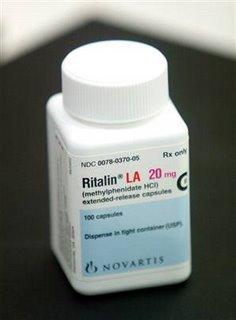Cosmetic Neurology: Brain-Boosting Drugs
 What’s the next big frontier in pharmaceutical marketing? Blockbuster drugs seem harder to develop these days, and it’s getting more difficult to sell minor tweaks to old products as major breakthroughs. It’s even getting more challenging to talk to physicians, as many of the old ploys to get face time (expensive meals, honoraria, etc.) are being abandoned. These days, it seems, pharma companies have been reduced to trying to convince consumers they suffer from obscure maladies like “restless leg syndrome.” The Holy Grail of new products would be a drug that could be used by anyone, and that is so attractive that consumers will flock to their physicians to demand it. Could that drug be a cognitive enhancer? Enter the brave new world of cosmetic neurology…
What’s the next big frontier in pharmaceutical marketing? Blockbuster drugs seem harder to develop these days, and it’s getting more difficult to sell minor tweaks to old products as major breakthroughs. It’s even getting more challenging to talk to physicians, as many of the old ploys to get face time (expensive meals, honoraria, etc.) are being abandoned. These days, it seems, pharma companies have been reduced to trying to convince consumers they suffer from obscure maladies like “restless leg syndrome.” The Holy Grail of new products would be a drug that could be used by anyone, and that is so attractive that consumers will flock to their physicians to demand it. Could that drug be a cognitive enhancer? Enter the brave new world of cosmetic neurology…
Despite the potential side effects, academics, classical musicians, corporate executives, students and even professional poker players have embraced the drugs to clarify their minds, improve their concentration or control their emotions.
“There isn’t any question about it — they made me a much better player,” said Paul Phillips, 35, who credited the attention deficit drug Adderall and the narcolepsy pill Provigil with helping him earn more than $2.3 million as a poker player. [From the Los Angeles Times, Drugs to build up that mental muscle by Karen Kaplan and Denise Gellene]
The appeal of cognitive enhancers is that just about anyone could justify taking them. Who wouldn’t benefit from being sharper and more focused on the job or while studying? Who wouldn’t like better memory? The authors of the LA Times article point out that, unlike the steroid uproar in sports, there has been little objection to the use of brain enhancers. You might not want your home run champion to be juiced, but if you were headed into surgery, wouldn’t you want your surgeon to be focused, alert, and free from hand tremors?
Musicians have a reputation for being relaxed about drugs, but in this case it’s not brain-fried rock stars popping the pills but otherwise staid classical musicians.
In the world of classical music, beta blockers such as Inderal have become nearly as commonplace as metronomes. The drugs block adrenaline receptors in the heart and blood vessels, helping to control arrhythmias and high blood pressure. They also block adrenaline receptors in the brain.
“You still have adrenaline flowing in your body, but you don’t feel that adrenaline rush so you’re not distracted by your own nervousness,” said Dr. Bernd F. Remler, a neurologist at the Medical College of Wisconsin in Milwaukee.
As many as three quarters of musicians may use beta blockers, at least occasionally, according to one veteran symphony player quoted in the article.
Classical musicians aren’t quite mainstream, but there’s plenty of evidence that cognitive enhancers are being used by students to improve their study skills. The pressure to excel felt by many students isn’t dissimilar to that experienced by their athletic counterparts.
In addition to Adderall, Provigil, and Inderal, ADHD remedies like Ritalin and Alzheimer’s drug Aricept may also have cognitive enhancement potential. In all cases, boosting the brains of healthy people isn’t one of the FDA-approved uses, although physicians in the U.S. have always had the freedom to prescribe drugs at their discretion.
A slightly more scholarly look at the search for cognitive enhancement drugs can be found in The Quest for a Smart Pill, a chapter in the Scientific American book, The Best of The Brain.
A true “smart pill” could be the biggest new drug introduction ever. If shown to be safe and effective, and if approved by the FDA for cognitive enhancement (which would allow full-bore marketing for that purpose), watch out. To use a movie analogy, if Viagra was Star Wars, this new drug will be Titanic.
